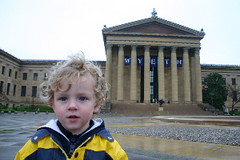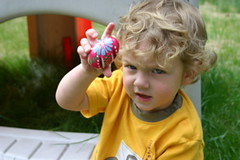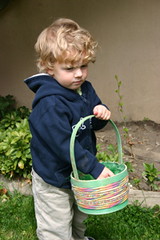Moving on into conservative Lancaster Country from the Democratic bastions of Pittsburgh and Philadelphia, the traveling road show known as the
Select Committee on Academic Freedom held hearings last week at Millersville University in Lancaster--home to
Rep. Gib Armstrong, sponsor of the bill authorizing this committee.
In its first two sets of hearings (at the
University of Pittsburgh and at
Temple University), the committee heard from administrators, students, and faculty at each university. This testimony identified no instances of violations of what Armstrong's committee mistakenly calls "academic freedom." ("Academic freedom" is a term referring to academics' liberty to study and write and teach about any topic without interference from outside authorities, while this committee should be more accurately described as searching out biased teaching, ideological policing, and indoctrination.) In order to "balance" these hearings--that is, in order to make it seem like there is a problem when they can't find anyone on campus who'll attest to it--the Committee has brought in outside voices: Emory U.'s Mark Bauerlein at Millersville, and the indefatigable David Horowitz at Pitt.
Millersville U. President Francine G. McNairy denied that this bias is a problem at her campus. According to the
Lancaster New Era,
"McNairy said students “do not have the right to remain free from encountering uncomfortable or inconvenient questions.” McNairy also said Millersville has had few student complaints about academic freedom. “I do not see that we have a problem with academic freedom,” McNairy said. “This has not been an issue raised by students, and, trust me, students are not shy.”"
The paper also
talked to the members of the committee, who are wearying of a committee that was supposed to investigate whether a problem existed but whose mission took it for granted that the problem did exist.
"At the close of the 11 hours of testimony, most members of the committee said they found little evidence that such liberal bias exists. And whatever problems might exist would be tough to cure via legislation anyway, they said.
With three of four public hearings completed, Republican state Rep. Gibson C. Armstrong, who spearheaded House Bill 177, which paved the way for the hearings, still held strong that biases do exist and that they have been documented. However, even Armstrong's fellow committeemen seemed weary of looking for them.
"I've seen classes in colleges about Marxism, but I can't imagine there's a class at Temple (University) indoctrinating students on Marxist ideology," Democrat Rep. Dan B. Frankel of Allegheny County said Thursday. "I'd like to see evidence that classes are being taught in that manner. Anyway, it's been a long day."
Some educators who testified Thursday took exception to having to defend themselves in a forum that, by the committee members' own admission, assumed from the outset that professors use the classroom to indoctrinate students to left-wing politics under the guise of education."
Although he has continued to fail to uncover evidence of bias, much less of pervasive bias and of students being punished for their views, in any of his hearings, Armstrong continues to insist that students come to him "privately" to complain of it.
In the same article, a student identified the real problem here:
"Several students spoke Thursday about political views expressed by their professors but qualified their testimony by saying they expect debate in the classroom and they hadn't encountered discrimination because of their views. They also said free speech should not be curbed in classrooms. One student, who identified himself as a conservative Republican, said he has been in classes where it was conservative professors who "pushed" their political ideas, making students uncomfortable."
I've noticed, over ten years of teaching in colleges, that students are less concerned with being indoctrinated and are more worried about just plain "bias," feeling that there is somehow some absolutely neutral, objective way to present information. Of course, there are the egregious exceptions--the biology teacher showing FAHRENHEIT 9/11 in class, for example--but for the most part students of any political stripe start to get uncomfortable when they sense that a teacher is being overt with his/her opinions. What students perceive as "bias," I'm concerned, is just the unavoidable coloring of our speech and choices of examples by our points of view. And I've never met a teacher who isn't up-front about this, who doesn't provide a disclaimer about it. Nobody I've ever talked to or supervised hasn't agonized about this issue and bent over backwards to be completely "objective" and "unbiased" in the important things: choice of class materials, range of acceptable opinions and stances, and most importantly grading.
Coverage of these hearings from the Millersville University student paper is available
here.



